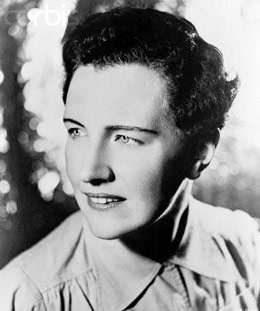Цитата Серена Кьеркегора
Самое распространенное отчаяние - это ... не выбор или желание быть собой ... [но] самая глубокая форма отчаяния - это выбор быть кем-то другим, а не самим собой.
Связанные цитаты
Человек в отчаянии отчаивается из-за чего-то. . . . Отчаявшись в чем-либо, он действительно отчаивается в себе, и теперь он хочет избавиться от себя. Следовательно, отчаяться в чем-либо еще не есть собственно отчаяние. . . . Отчаяться в себе, в отчаянии желать избавиться от себя — вот формула всякого отчаяния.
По сравнению с человеком, осознающим свое отчаяние, отчаявшийся индивидуум, не осознающий своего отчаяния, представляет собой просто негативность, еще более далекую от истины и избавления. . . . И все же невежество так далеко от того, чтобы сломить отчаяние или превратить отчаяние в отсутствие отчаяния, что фактически может быть самой опасной формой отчаяния. . . . Индивидуум наиболее далек от сознания себя как духа, когда он не знает, что находится в отчаянии. Но именно это — не сознавать себя духом — есть отчаяние, бездуховность. . . .
Грех есть: пред Богом, или с понятием о Боге, в отчаянии не хотеть быть собой, или в отчаянии хотеть быть собой. Таким образом, грех есть усиленная слабость или усиленное неповиновение: грех есть усиление отчаяния. Акцент делается на перед Богом или с представлением о Боге; именно представление о Боге делает грех диалектически, этически и религиозно тем, что юристы называют «усугубленным» отчаянием.
Все возрастающая интенсивность отчаяния зависит от степени сознания или пропорциональна этому возрастанию: чем больше степень сознания, тем интенсивнее отчаяние. Это проявляется повсюду, особенно в отчаянии в его максимуме и минимуме. Отчаяние дьявола есть самое сильное отчаяние, ибо дьявол есть чистый дух и, следовательно, безусловное сознание и прозрачность; в дьяволе нет никакой неясности, которая могла бы служить смягчающим предлогом. Поэтому его отчаяние является самым абсолютным неповиновением. . . .
Оптимизм — это отчужденная форма веры, пессимизм — отчужденная форма отчаяния. Если по-настоящему реагировать на человека и его будущее, т. е. заботливо и «ответственно». ответить можно только верой или отчаянием. Рациональная вера, как и рациональное отчаяние, основаны на самом тщательном, критическом знании всех факторов, имеющих отношение к выживанию человека.
Это отчаяние от отсутствия чувств, любви, разума в мире. Это отчаяние, что кто-то может даже подумать о том, чтобы сбросить бомбу или приказать сбросить ее. Это отчаяние, что так мало кто из нас заботится. Отчаяние, что в мире столько жестокости и черствости. Это отчаяние, что совершенно нормальные молодые люди могут быть сделаны порочными и злыми, потому что они выиграли много денег. А потом сделай то, что ты сделал со мной.

































